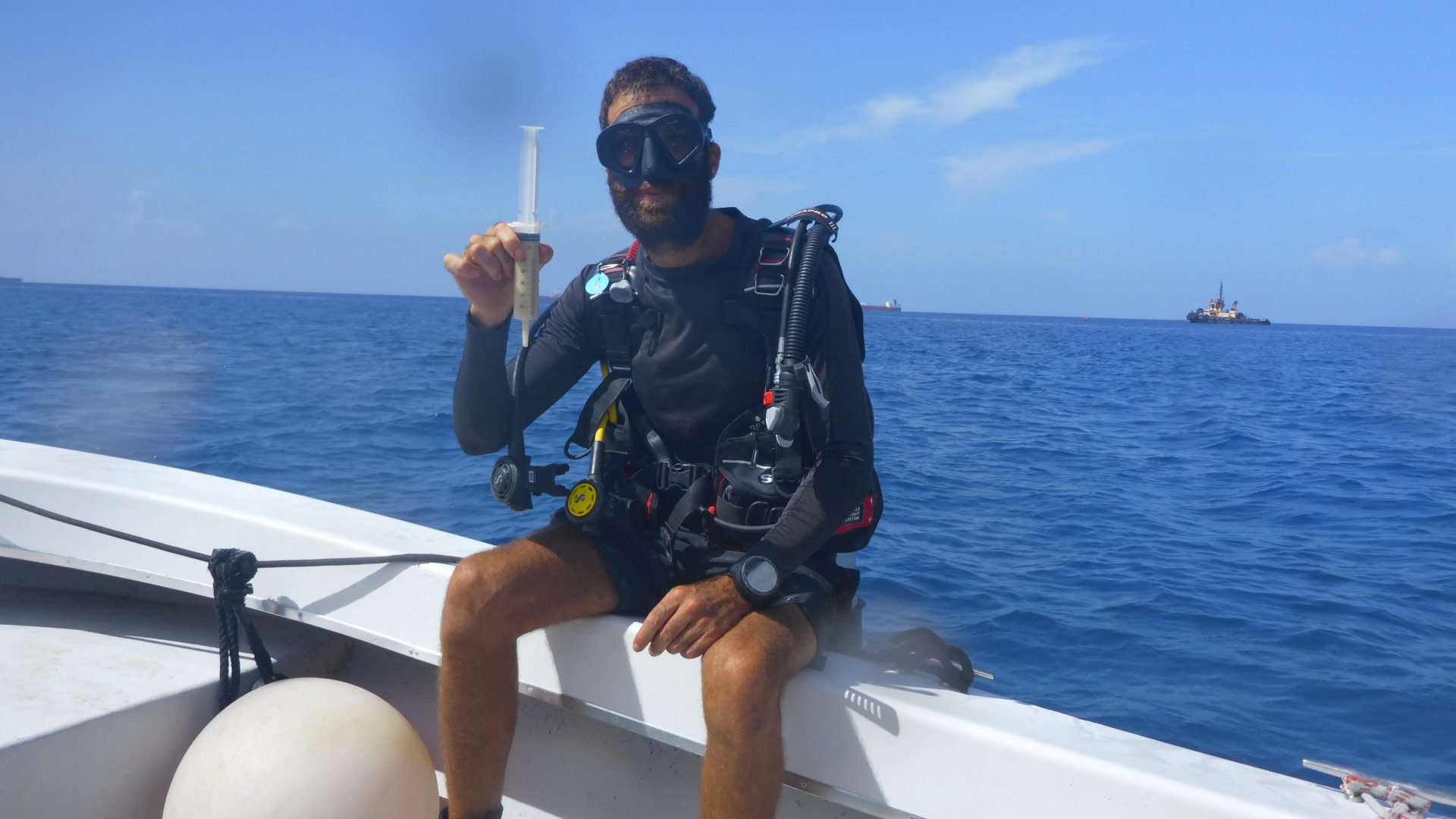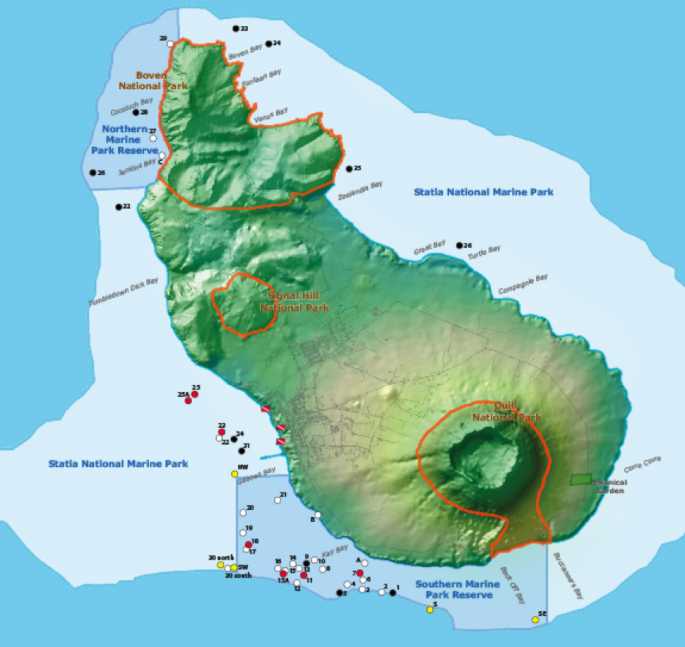A relatively new coral disease termed ‘Stony Coral Tissue Loss Disease’ or SCTLD is a fast spreading lethal disease that was first reported in Florida 2014 and later in St Maarten in October 2018. The cause of the disease is unknown, but scientists are working to identify the pathogen(s) responsible. Over 20 species of corals have been affected so far, especially brain, pillar, star and starlet corals.
♦
Marit Pistor, one of the Marine Park Rangers, attended a workshop in Key West Florida in the beginning of August to further understand what was needed to counter the coral disease. The workshop was organized by MPA Connect and funded by the Gulf and Caribbean Fisheries Institute (GCFI). Both Rangers, Francois Mille and Marit soon after spotted corals with white spots while diving at the Inner Jenkins, St Eustatius. These corals were then checked frequently and the white spots were seen to increase each week. The corals were further monitored to see how each “individual” coral was doing while scientists in Florida were consulted to confirm if Stony Coral Tissue Loss Disease had indeed made it to Statia’s waters.
♦
Dive sites in the north were inspected and all the corals in these areas were found to be infected with the disease. At the time of this article, the disease has made its way to the STENAPA reef dive site in the harbor area. Since the disease is likely spread through the water column, the Marine Park Rangers ensure that their gear goes through an additional rinse in diluted bleach-water after diving on the northern dive sites. For more information on the amended rinsing protocol used to prevent the spread of the coral disease, please contact STENAPA or visit our website at statiapark.org/SCTLD-rinsing-protocol.
♦
The CoreRx treatment for these corals was donated to STENAPA by Ocean Alchemists to aid in the control and elimination of the disease in St Eustatius’ waters. The donation will go a long way to treat the sick corals and to contain the disease in the north. It is important to work together to prevent the spread around the island now.
♦
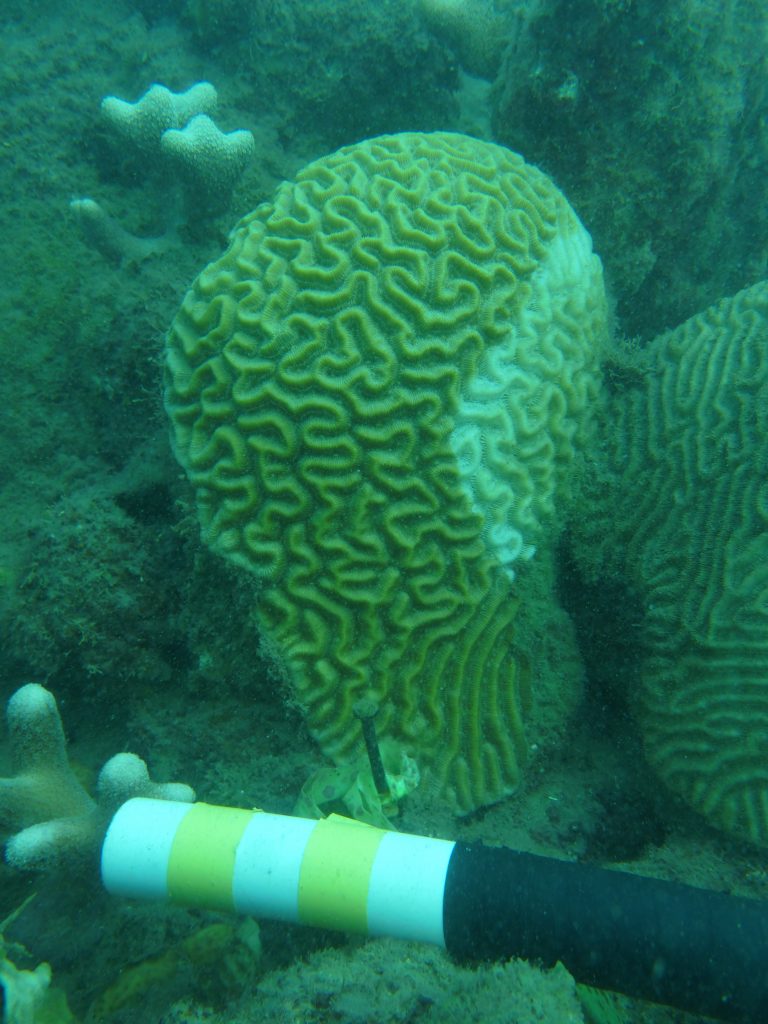
Before application of treatment. 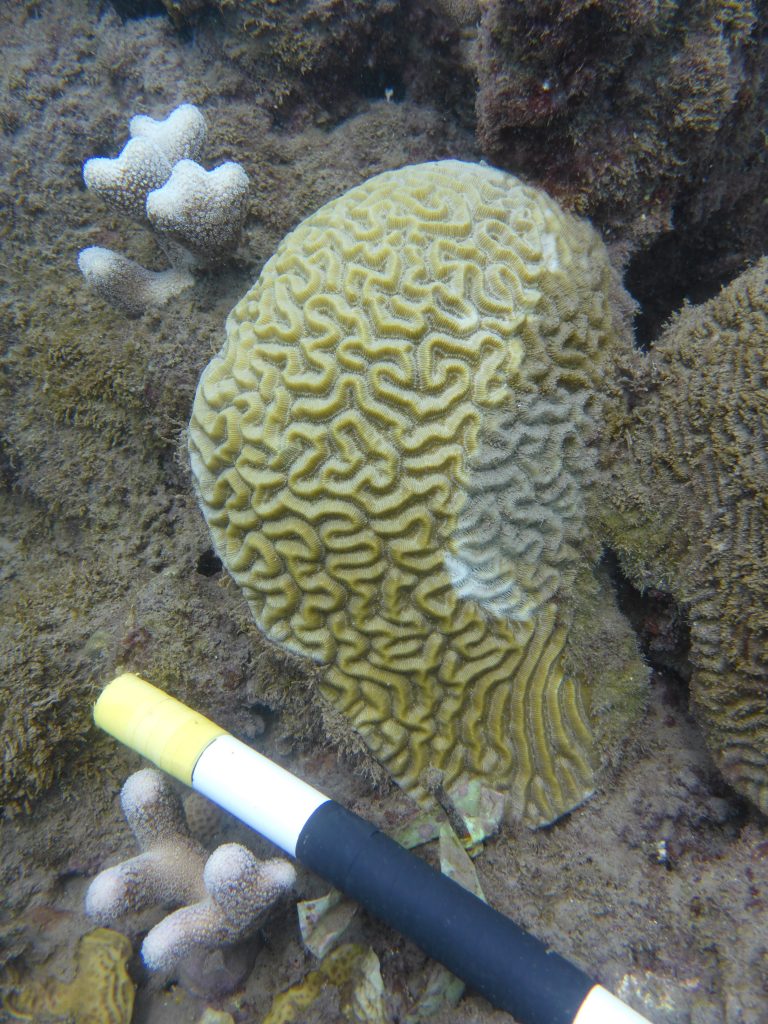
Before application of treatment. 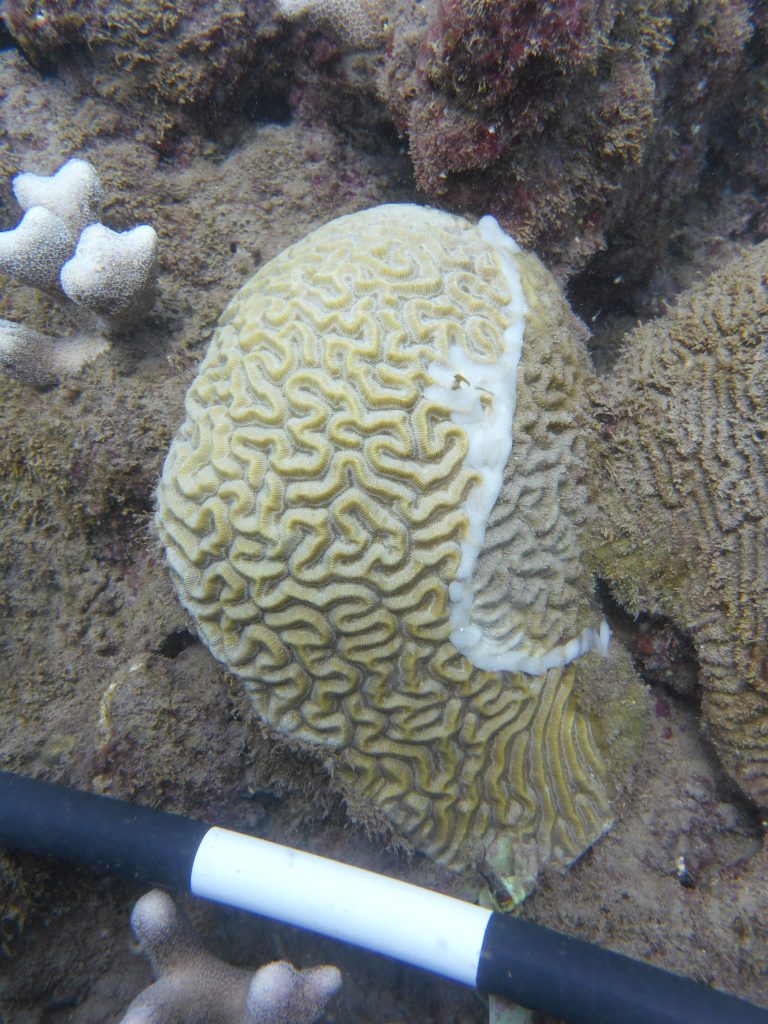
Application of treatment between healthy and affected coral tissue.
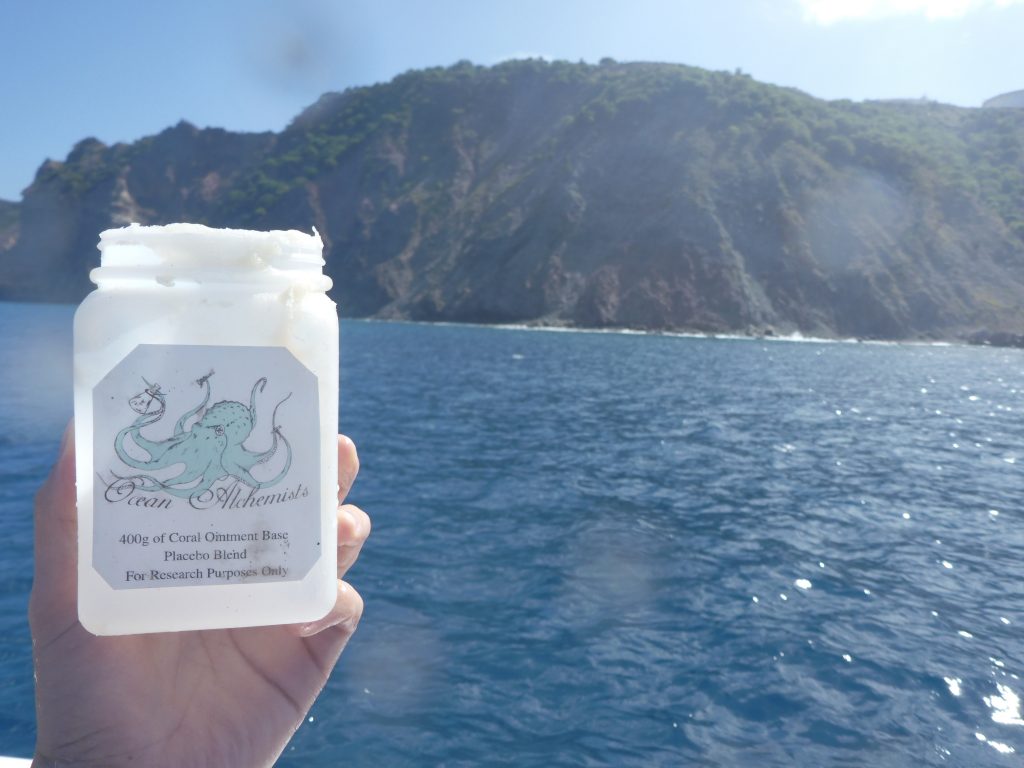
Treatment donated by Ocean Alchemists 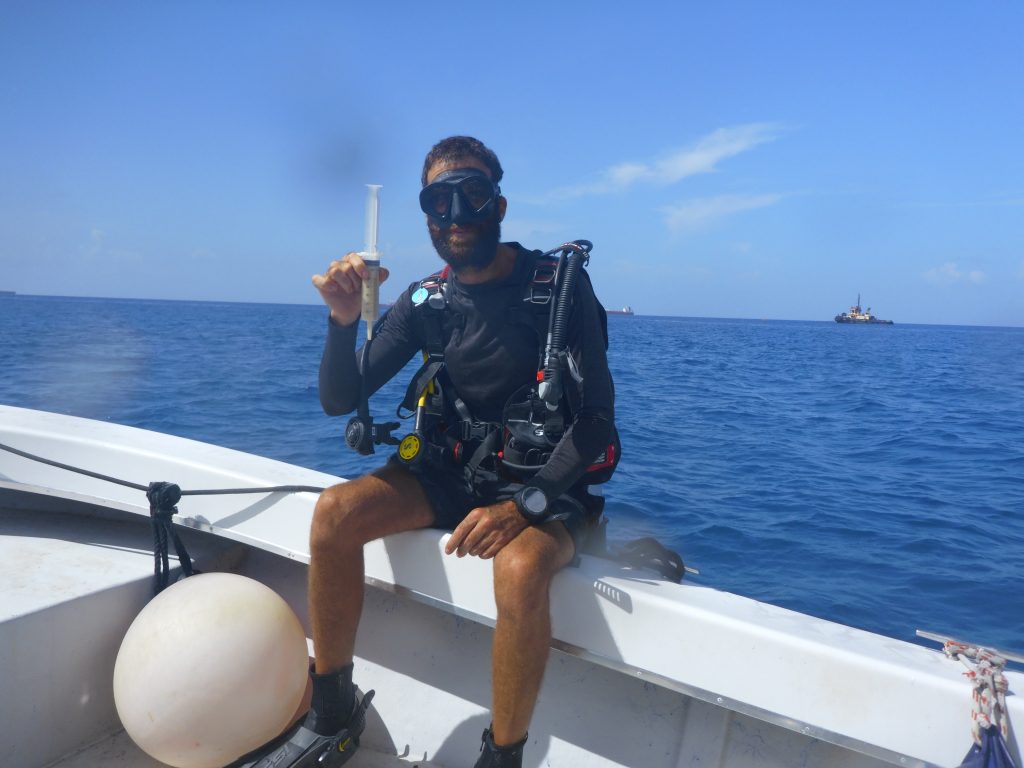
Gal, an intern, holding the treatment before the dive at Inner Jenkins



